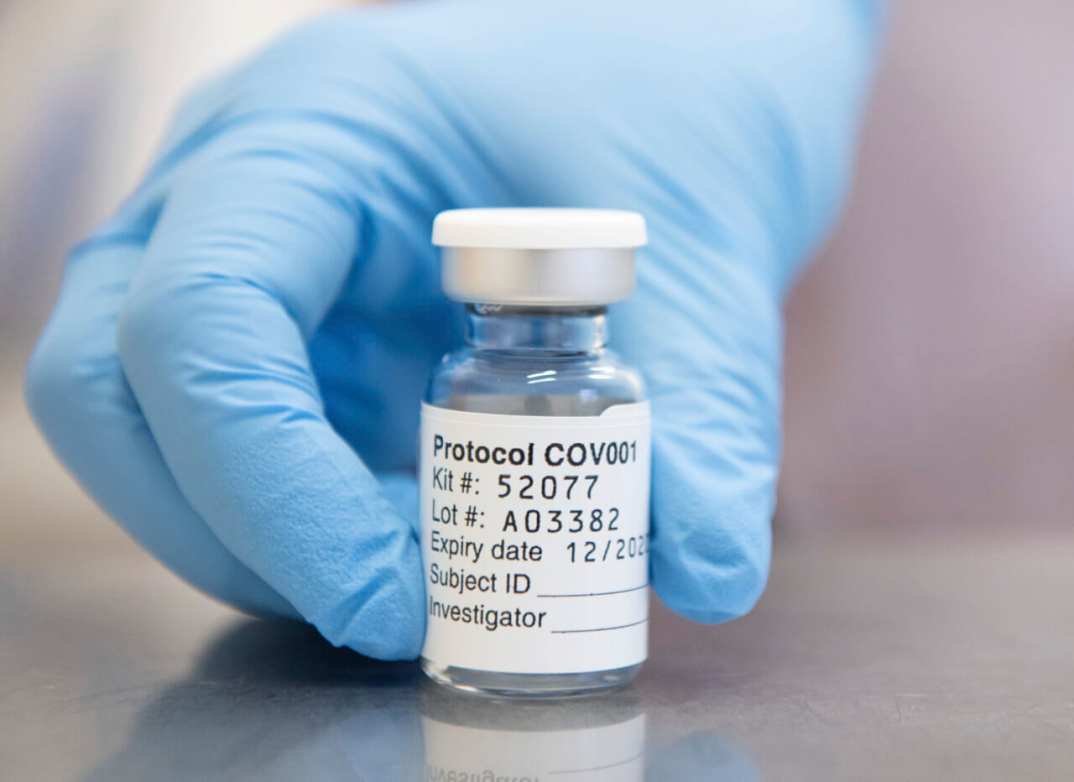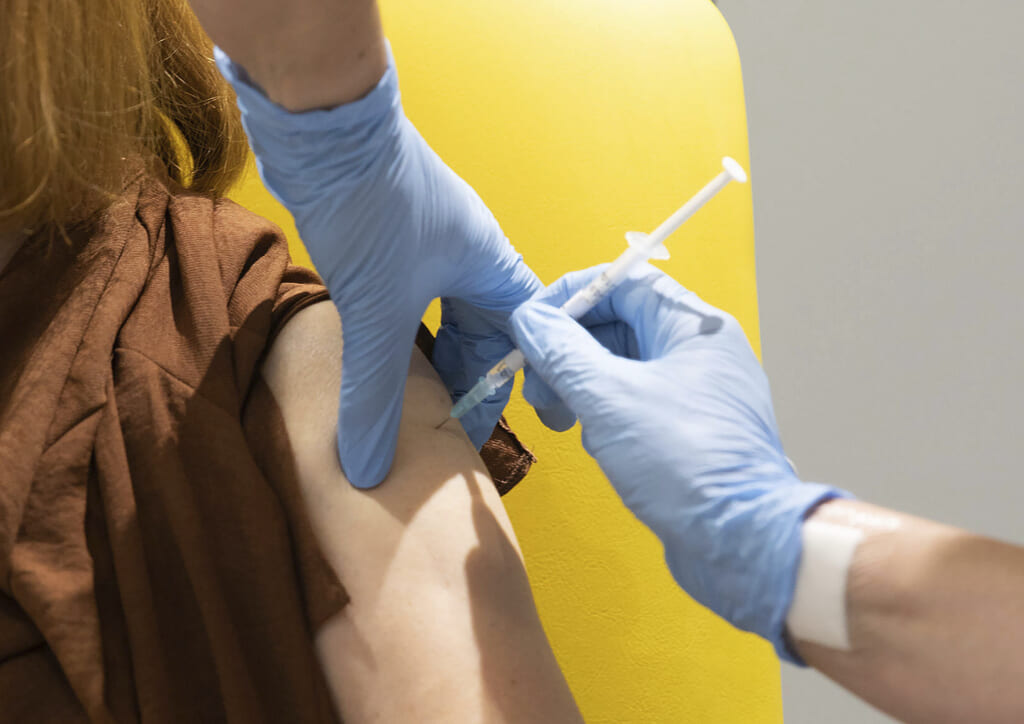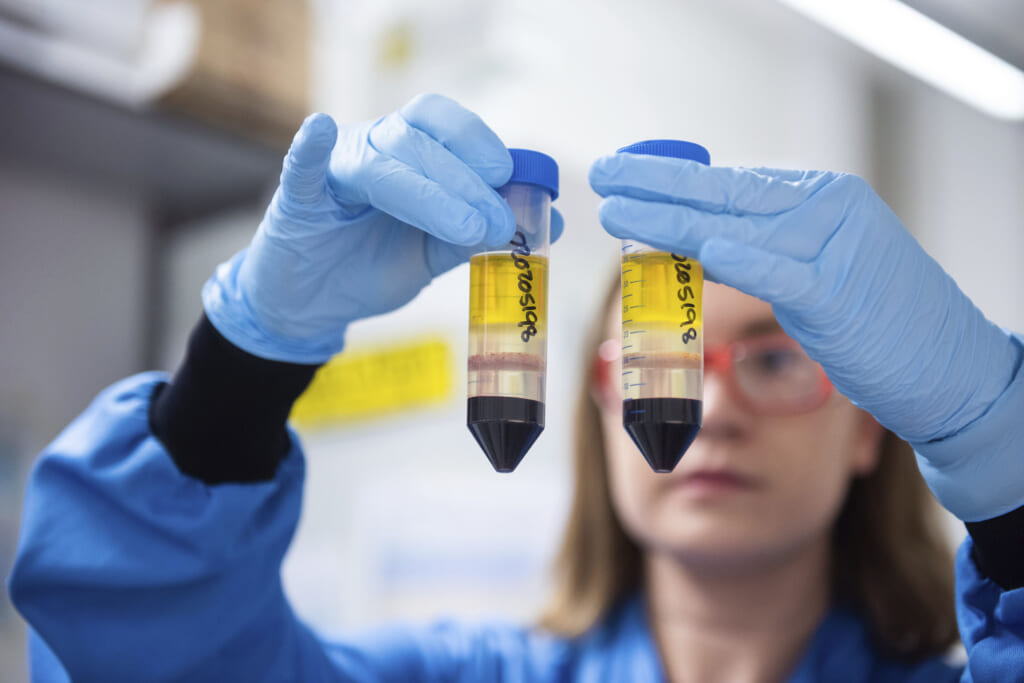‘Vaccine for the world’ gets approved by watchdog in the UK
The vaccine developed by Oxford University and AstraZeneca is expected to be relied on in many countries

Britain authorized an easy-to-handle coronavirus vaccine Wednesday and decided to stretch out the time between doses to allow more people to get some level of protection faster as infections surge. The first greenlight for the shot dubbed the “vaccine for the world” brought a measure of hope that the pandemic could be brought under control.
The vaccine developed by Oxford University and drugmaker AstraZeneca is expected to be relied on in many countries because of its low cost and the fact that it can be kept in refrigerators rather than at the ultra-cold or freezer temperatures some other vaccines require.
Read More: Kamala Harris receives COVID-19 vaccine, urges trust in minority communities
“This wonderful news brings renewed hope at a time of rising infections and unprecedented pressure on health services in the U.K. and beyond. It is now critical that this hope can be shared by all nations,” said Anna Marriot, Health Policy Manager at Oxfam aid agency.
Even as the authorization was welcomed as a significant development in efforts to contain the virus that has killed nearly 1.8 million, the change in British policy on administering the shots drove home concerns about a new, potentially more contagious variant that authorities blame for rising hospitalizations in Britain. The new variant has been found in several countries, including the U.S.
Because infections are spreading so rapidly in the U.K., officials are now recommending prioritizing delivering a first dose to as many people as possible for both of the vaccines authorized for use in the country: the AstraZeneca one and another from Pfizer-BioNTech. Officials say both protect people even after just one of the two recommended doses — and that increasing the time between doses might even have a benefit.
“The immediate urgency is for rapid and high levels of vaccine uptake,” Wei Shen Lim, chair of the Joint Committee on Vaccination and Immunisation, told reporters Wednesday. “This will allow the greatest number of eligible people to receive vaccine in the shortest time possible, and that will protect the greatest number of lives.”
Hundreds of thousands of people in the U.K. have already received at least one shot of the Pfizer-BioNTech vaccine. British Health Secretary Matt Hancock said the rollout of the AstraZeneca one will start Jan. 4.
Read More: Fear grows that vaccine misinformation will be worse than election disinformation

The Medicines and Healthcare Products Regulatory Agency, which recommended the AstraZeneca vaccine for emergency use, did not endorse one vaccine over the other.
The regulator also updated its guidance on the Pfizer-BioNTech shot to say that pregnant women and women who are breastfeeding can get it after a consultation with a health professional about the benefits and risks. Previously, the agency had not recommended the shot for pregnant women.
And instead of advising against its use in people with severe allergic reactions to food, other medicines or vaccines, the regulator now says only people with an allergy to ingredients of the Pfizer-BioNTech vaccine should not get the shot.
Both the AstraZeneca and Pfizer vaccines were tested with two doses, given a few weeks apart. Now, the British government said that for both vaccines it would prioritize giving as many people as possible a single dose — and everyone would get a second shot within 12 weeks of the first.
While soaring case numbers played a part in that decision, Munir Pirmohamed, of Britain’s Commission on Human Medicines, said that there appeared to be no drawback to waiting for the second dose and that a longer time between shots might even improve efficacy.
Read More: Marco Rubio dragged for Fauci dig after being one of the firsts to get vaccine

Pfizer responded to the new British policy by saying that any “alternative” dosing regimens should be tracked by health authorities. It noted that two doses are needed for “maximum protection” against the disease, and that it has no data that show protection from just one dose lasts longer than 21 days.
The new strategy comes as the number of hospitalized COVID-19 patients in the U.K. has surpassed the first peak of the outbreak in the spring, with authorities blaming the new variant, which was first identified in southeast England.
Oxford University’s Dr. Andrew Pollard, one of the leaders of the vaccine development team, offered hope the newly authorized shot will help.
“At the moment, there’s no evidence that the vaccines won’t work against the new variant,” Pollard told Radio 4. “But that is something which we have to look at. We can’t be complacent about this variant or perhaps future variants.”
Pollard has called the AstraZeneca shot “a vaccine for the world.”
The ultra-cold or freezer temperature storage required by other vaccines is “very impractical” in developing countries, said Dr. Gillies O’Bryan-Tear, chair of policy and communications for Britain’s Faculty of Pharmaceutical Medicine. It means the AstraZeneca one “may reach more parts of the world than the Pfizer one,” he said.
The company has also said it will sell it for $2.50 a dose and plans to make up to 3 billion doses by the end of 2021.
Partial results from studies in almost 24,000 people in Britain, Brazil and South Africa suggest the AstraZeneca shots are safe and about 70% effective for preventing illness from coronavirus infection.
Questions also remain about how well the vaccine protects older people. Only 12% of study participants were over 55 and they were enrolled later, so there hasn’t been enough time to see whether they develop infections at a lower rate than those not given the vaccine.
Britain’s action likely means the World Health Organization could soon clear the AstraZeneca vaccine for use in a global effort to help poor countries, called COVAX. The initiative has secured access to at least 100 million doses of the vaccine, with options and other deals to buy more. But none can be distributed until greenlighted by WHO.
The U.N. health agency does not license or regulate vaccines itself, but typically evaluates vaccines once they have been approved by a regulator such as the U.K.’s. WHO experts decide whether or not the risks of a vaccine outweigh its benefits and then make a recommendation for the shots to be “pre-qualified” so they can be bought by donors for developing countries.
Most coronavirus vaccines to be used in poorer countries likely will be made by the Serum Institute of India, which has been contracted by AstraZeneca to make 1 billion doses. In June, the pharmaceutical company announced that the Serum Institute would produce 400 million doses by the end of 2020 but as of early December, only about 50 million doses had been manufactured after production was halted several times.
In addition to the Serum Institute, AstraZeneca has deals with vaccine makers in Brazil, South Africa and China.
Pirmohamed, of the Commission on Human Medicines, added a note of caution following Wednesday’s authorization of the vaccine.
“I think with the authorization of vaccines, everybody said that we can now see the light at the end of the tunnel. I completely agree with that,” he said. “However, we we’re not there yet. While we hurtle towards that light, it is really important that everybody continues to follow government guidelines.”
Have you subscribed to theGrio’s podcast “Dear Culture”? Download our newest episodes now!
TheGrio is now on Apple TV, Amazon Fire, and Roku. Download theGrio today!
